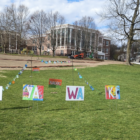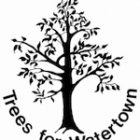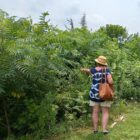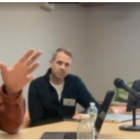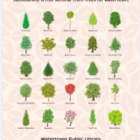The following information was provided by Trees for Watertown:
THE RIGHT TREE FOR ME: Trees for Watertown to Offer Free Seminar
Experts Show How to Choose the Perfect Tree for Your Yard
On Saturday, March 11th from 9:30 to 11:30 AM at the Watertown Public Library, Trees for Watertown will present a free seminar titled “The Right Tree for Me”. It will be available both in person and via Zoom. According to TFW President Libby Shaw, the idea for the seminar began with the knowledge that 80 percent of Watertown’s trees are on private land.
“Our goal is to improve the quality of life for city residents by increasing our city’s population of shade trees and these trees’ longevity,” Shaw said. “It’s trees with big, healthy canopies that provide the strongest infrastructural and ecological services. Watertown is doing great work with street trees, but street trees provide at most about 20 percemt of our city’s protective tree canopy. To succeed we need to help homeowners find ways to add and maintain healthy, long-lived trees in their yards.”
In planning the seminar, the Trees for Watertown team explored what kinds of information homeowners seek when they’re thinking about planting a tree. TFW members found that for some, affordability is a primary concern. Others want tips on how best to plant a tree and maintain its health.
One common question Watertown residents have is whether their yard is big enough to support a tree. Some just aren’t sure how to fit a tree into their landscaping.



